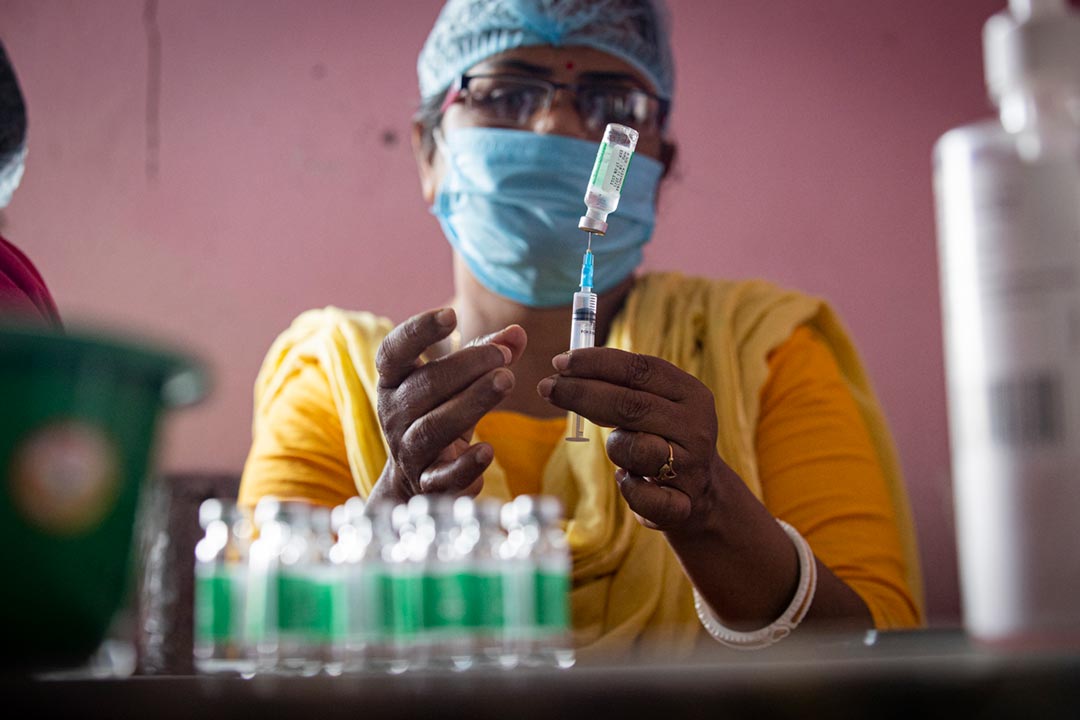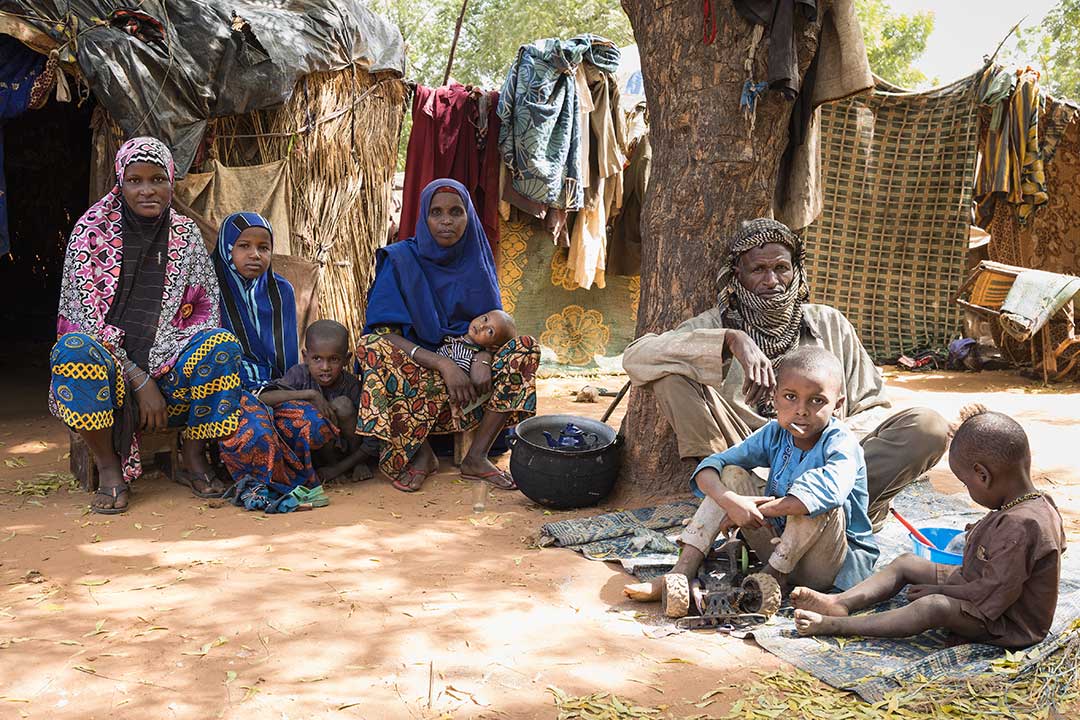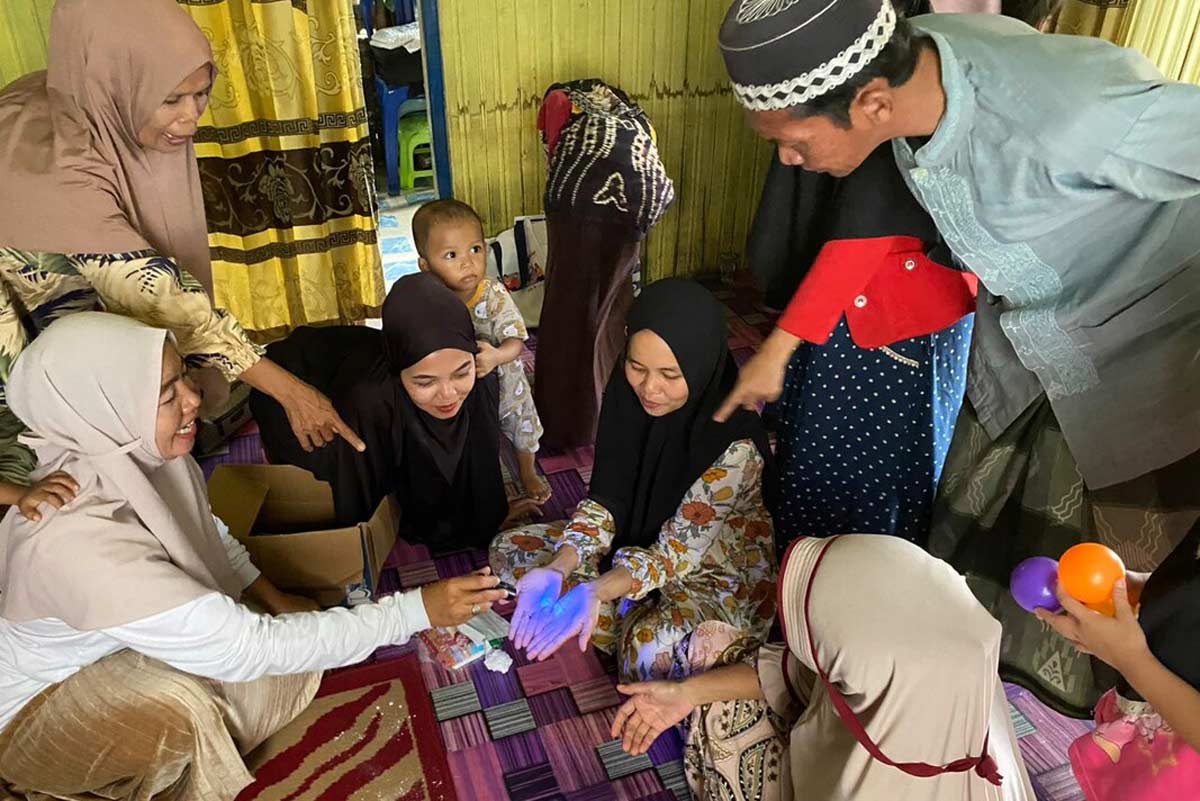How day zero financing could help protect the world during the next pandemic
Gavi’s First Response Fund aims to secure immediate access to vaccines and to protect routine immunisation programmes during major public health emergencies.
- 12 June 2024
- 5 min read
- by Gavi Staff

Gavi's Board has approved the details of a US$ 500 million fund designed to secure early access to vaccines and to protect existing immunisation programmes within days of a pandemic or a public health emergency of international concern being declared.
A key lesson from the COVID-19 pandemic was that delayed access to financing can significantly impede equitable access to vaccines. While the COVAX initiative was established in April 2020 to try and accelerate the development and manufacture of COVID-19 vaccines and guarantee fair and equitable access to them, by the end of 2020, only US$ 400 million of the US$ 2.4 billion pledged had been paid in.
“No other existing international mechanism provides funds ‘at risk’ to help ensure lower-income countries can secure a priority place the queue for pandemic vaccines – one of the big lessons from COVID-19.”
– David Kinder, Director of Development Finance, Gavi
An independent study by the International Monetary Fund found that 60–75% of the delay in COVID-19 vaccine deliveries to low- and middle-income countries was attributable to their signing purchase agreements later than high-income countries, which placed them further behind in the delivery line.
The First Response Fund is one of several financial instruments being developed under Gavi's Day Zero Financing Facility for Pandemics (DZF), which together aim to provide up to US$ 2.5 billion of surge financing capacity to support a rapid vaccine response during major public health emergencies, to try and achieve more equitable outcomes for the countries that Gavi, the Vaccine Alliance supports.
"The problem we're trying to solve are these months of delay between Day Zero in the next pandemic and money being available to spend," says Charles Bleehen, Gavi's Head of Development Finance.
"According to a recent simulation by the G20 Joint Health Financing Task Force, having this sort of contingent response funding in place within the first few weeks of another COVID-19-style pandemic could reduce deaths by up to 74% and economic costs by 95% – so it really could make a huge difference."
What is the First Response Fund?
The First Response Fund will be available to Gavi-eligible countries within the early days of a pandemic or major health emergency being declared. It pre-positions up to US$ 500 million of surge financing for vaccine procurement 'at risk'. Similar to the case of COVID-19, this could mean funds are used to secure doses of vaccines and Gavi's place in the queue while manufacturers complete their final steps linked to necessary regulatory approvals and manufacturing scale-up.
As the fastest instrument in the DZF, its goal is to bridge immediate funding needs until further resources can be unlocked. It would be used for three key things:
- Securing rapid vaccine access for Gavi-eligible countries;
- Preparing and supporting vaccine delivery systems in those countries, so they're ready to receive those vaccines and get doses in arms; and
- Keeping routine immunisation programmes running, including by protecting health workers through the provision of, e.g. personal protective equipment (PPE).
"The First Response Fund is unique," says David Kinder, Director of Development Finance at Gavi, the Vaccine Alliance. "No other existing international mechanism provides funds 'at risk' to help ensure lower-income countries can secure a priority place the queue for pandemic vaccines – one of the big lessons from COVID-19."
Have you read?
To be eligible for funding, emergencies must have been designated a Public Health Emergency of International Concern (PHEIC) – or a Grade 2 or 3 emergency (signalling a significant public health threat) – by the World Health Organization; and involve a disease or pathogen for which Gavi has no existing vaccine programme or outbreak response in place.
"Once an outbreak has been designated a Grade 2 emergency or higher by the WHO, we will launch a technical assessment informed by our partners, and make a recommendation as to whether funds should be drawn down from the First Response Fund," says Laura Craw, Senior Manager, Global Health Security at Gavi, the Vaccine Alliance.
"A minimum 80% of the funds are reserved for the highest-level threats – ones where the WHO declares a PHEIC. But we've also left 20% that could be tapped into for Grade 2 or 3 outbreaks that are posing significant challenges for the country and potentially neighbouring countries, and where a vaccination response is appropriate, or routine immunisation may be affected."
What other financial instruments will be available?
Two further surge financing instruments will be unlocked through Gavi's DZF if the pandemic continues to worsen, and as new donor financing can be mobilised to scale the vaccine response:
- The Rapid Financing Facility: a means of temporarily borrowing up to US1 billion in aggregate liquidity, secured against donor pledges raised to respond to the emergency, from the US Development Finance Corporation.
- An additional donor frontloading facility, negotiated with the European Investment Bank, that provides a further €1 billion secured against donor grants.
Together, these tools will help the Alliance to mount a faster vaccine response on behalf of Gavi countries within the first 100 days of a pandemic or major health emergency being declared.
How does Gavi's Facility fit with other Day Zero financing initiatives?
The concept of Day Zero financing was first introduced at a roundtable on global health security, at the Munich Security Conference in December 2021. Like Gavi's DZF, this broader global security initiative aims to ensure that sufficient pre-committed funds are immediately available for medical countermeasures and 'at-risk' investments from the onset of the next pandemic.
While Gavi's focus is on rapid vaccine responses, there is also a need for at-risk investment in medical treatments, diagnostics and other tools such as PPE and medical oxygen, to control and mitigate the impact of pandemics. Various initiatives are currently being developed by the G7, G20, WHO, the Pandemic Fund and other organisations to secure financing for such investments. Gavi is actively involved in these discussions and will continue to ensure that a vaccine response is aligned with the emerging architecture.









